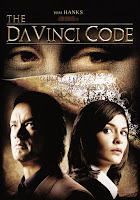A book, film, or TV series enjoyed
A few years ago, or maybe ten years ago now, I decided to lighten my bookshelves, which had become loaded with thousands of books. I hadn’t bought a paper book for some years, and even the ones I had I’d largely replaced with Kindle versions. I love reading on Kindle — I can switch conveniently from my tablet when reading at home to my phone when out and about. About the only drawback with Kindle now is that I have to type notes: it doesn’t yet offer the option of scribbling handwritten notes.
 |
| Pride of place on my shelves in the company of Austen's other masterpieces |
For those not familiar with this story, it has also been made in films a few times, most recently starring Keira Knightley, who, as Mr. Darcy astutely points out, “smiles too much.” The Keira Knightley version of Pride and Prejudice is OK, but like every other film version I’ve seen is a poor substitute for the real thing. The exception in adaptations for the screen is the excellent BBC production starring Colin Firth as Mr. Darcy. This version of the story keeps its excellence by faithfully following Austen’s story in every detail, and most importantly by keeping unaltered almost all of her brilliant dialogue. The speech of each character presents them as believable, fully formed human beings, with credible motives for their acts. While treating the serious issues facing respectable women in polite society 200 years ago, Austen can also make us laugh at the pretensions she displays so brilliantly. We, at least I, also wonder how much of the foolishly respectable Mr. Darcy, the self-deluding heroine Elizabeth, or the scheming Mrs. Bennet, rightly terrified of the poverty into which she and her daughters could so easily be thrown by laws and social customs of the conservative traditions of their society. Happily, all turns out well in the end, save for the bad characters who get their just deserts.
Even though I’ve read this novel so many times that three of my cherished paper copies are falling apart from the constant reading, it still gives great pleasure every time I read it again and discover new details, new complexities, new connections among the schemes and themes, or simply relive old pleasures. The fourth paper copy is safe from the normal wear and tear of reading: these last ten years or so, I read the novel on Kindle, where it never deteriorates, but I could not bring myself to sacrifice the well-read paper editions to the cause of decluttering my home. They keep their place on the shelf that has been their home these past 15 years.
so sensible of the BBC to have copied most of Jane Austen's dialogue.
______________________
And a book, film or TV series not enjoyed
 |
| not recommended |
I thought that the story wasn’t bad. It’s a fun plot with the nasty Catholic church repressing knowledge has been that religion’s habit since it began 2,000 years ago. And who could not like plotting priests, lying bishops and a murderous holy group determined to do their god’s work, to fight for him, and kill for him? Add in a shocking truth that has been kept secret for the same 2,000 years and you have the foundation for a great story.
The problem is that Dan Brown is a terrible writer. His short sentences in simple, repetitive language make his characters seem like slightly retarded fools, ever amazed by silliest things as they blunder into one amazing solution after another. If Robert Langdon were a real Harvard University professor, Harvard would be at the bottom of the international university rankings.
In fact, the childish language and shallow, constantly repeated emotions and dialogue made this so hard for me that I almost gave up and didn’t bother finishing it. But I bravely struggled through until the bitter end when the unbelievable characters came to their melodramatic ends and the terrible secret was revealed to shake the world.
 |
| recommended |
This is 354 words, which is at the upper limit. You can also see the Google Doc prepublication version.
After you paste in your work, format the titles of book, movies, and TV series in italics, which is a standard style. And you are welcome to add a relevant image or two.
______________________
A regular habit
Although I’ve tried the background options that some people use during video meets on Zoom or the Google Meet app that we use, I’ve chosen to stick with reality. The reason for this regular habit is that I notice that the apps that create the backgrounds sometimes think that hand gestures, clearly not being face, are part of the background, which can look a bit odd at times. Yesterday I was teaching an online class where one of the students was using a background that displayed a cool looking photograph of stars across the night sky, but when she picked up her bottle of water, it was blended into the background, making it look as though she was drinking from a bottle of galactic majesty. And since I sometimes use gestures, I decided it would be a better habit to let people see my actual background. Two of the things on display in every class among other clutter are my coffee grinder and my coffee drip filter machine, both essential tools for one of my most enduring regular habits.
 |
| Mmm ... |
My day always begins with a simple ritual: I wake up, push the button to grind coffee, put the ground beans and water in the coffee maker, turn on my computer, and then brush my teeth while the coffee brews. Then I sit down and enjoy the large, black coffee as I browse the newspapers I habitually read. In the afternoon, the coffee habit is repeated.




